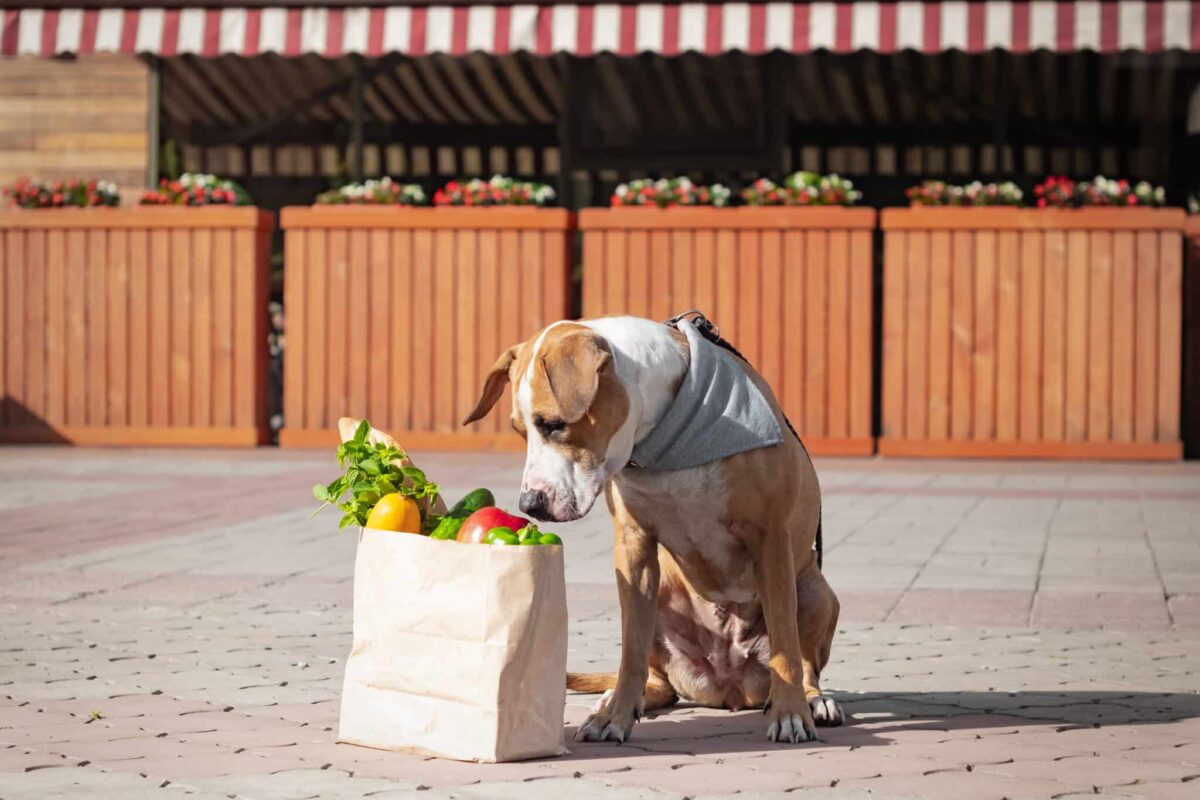
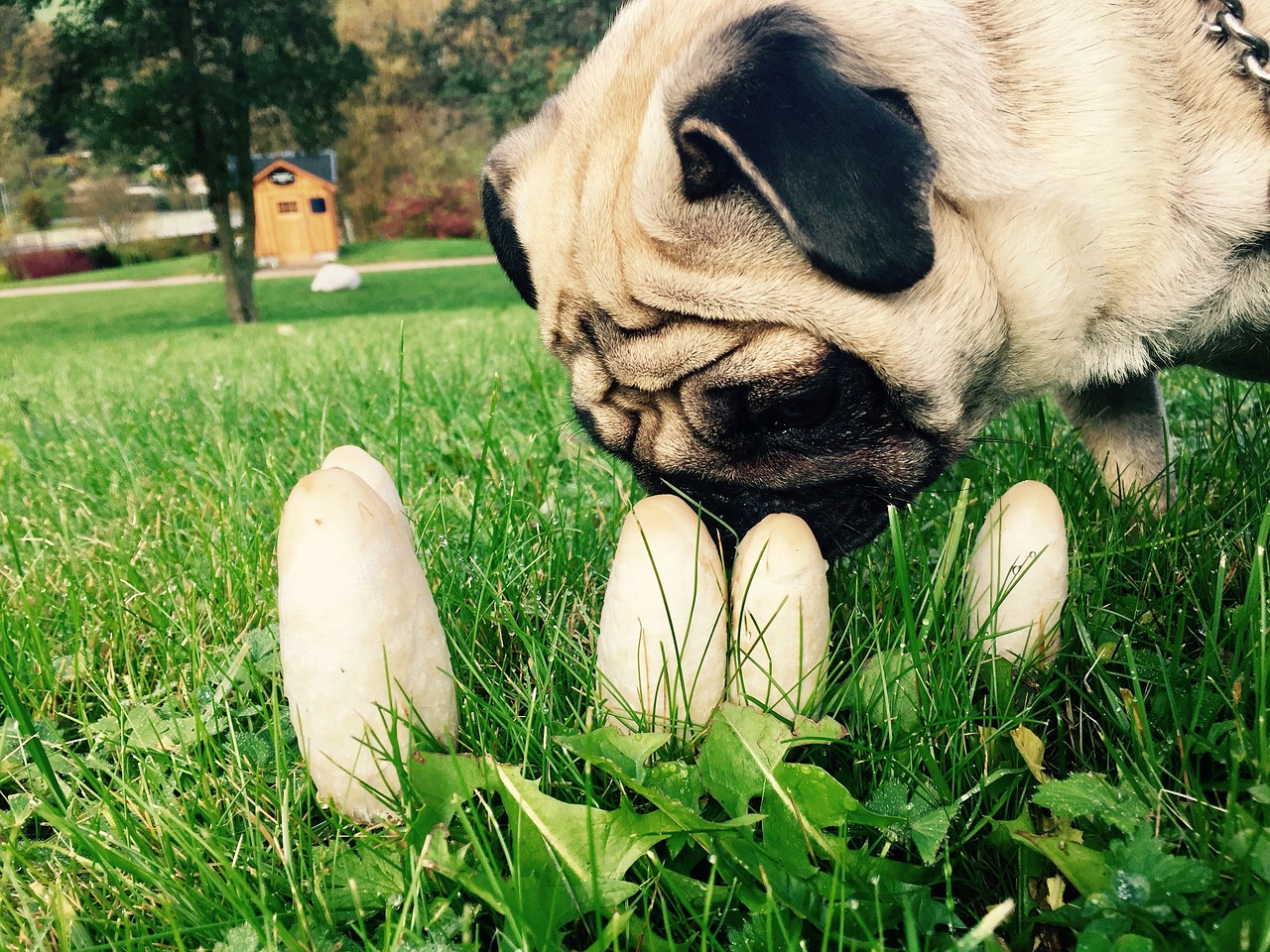 Shutterstock
Shutterstock
As a dog owner, it’s natural to want to share some of your favorite foods with your furry friend. However, not all human foods are safe for dogs; some can be dangerous. While certain foods might seem harmless, they can cause severe reactions in dogs, ranging from stomach upsets to life-threatening conditions. On the flip side, some foods you might assume are off-limits can be safely enjoyed by your canine companion. Understanding the difference can keep your dog happy while satisfying their curiosity about what’s on your plate.
Chocolate
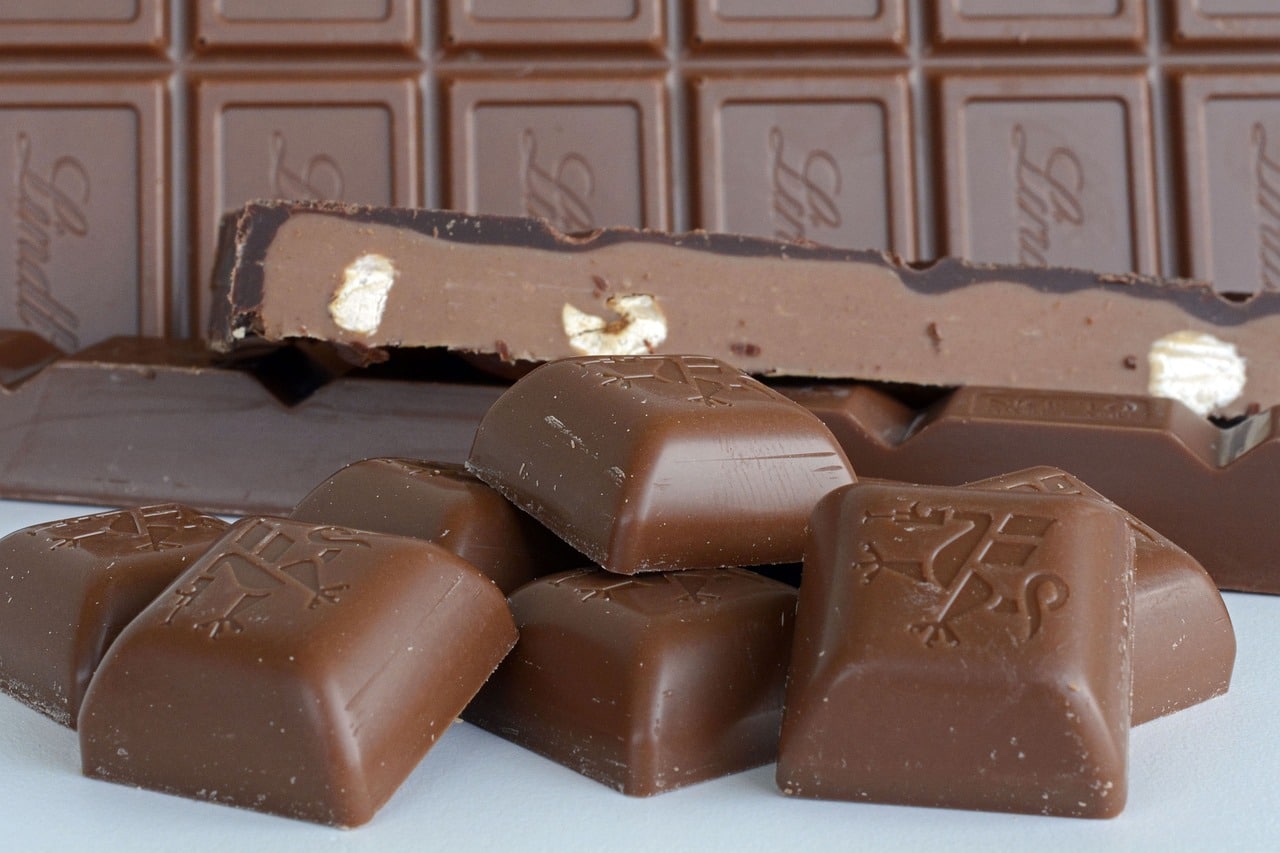 Shutterstock
Shutterstock
Chocolate is a well-known no-no for dogs, but it’s worth repeating because of how toxic it can be. Chocolate contains theobromine and caffeine, both stimulants that dogs cannot metabolize effectively. The darker the chocolate, the higher the theobromine content, making it even more dangerous. Even small amounts can cause vomiting, diarrhea, tremors, or seizures in dogs. In severe cases, chocolate ingestion can lead to heart problems or even death. If your dog manages to sneak a piece of chocolate, it’s crucial to contact your vet immediately.
Grapes and Raisins
 Shutterstock
Shutterstock
Grapes and raisins are highly toxic to dogs and can cause sudden kidney failure. Even a small amount can lead to serious symptoms like vomiting, lethargy, and loss of appetite. The reason behind this toxicity isn’t entirely understood, but it’s clear that grapes and raisins should be kept far away from dogs. Some dogs may react more severely than others, but testing their tolerance is not worth the risk. If your dog consumes grapes or raisins, seek veterinary attention immediately to prevent severe complications.
Onions and Garlic
 Shutterstock
Shutterstock
Whether raw, cooked, or powdered, onions and garlic are toxic to dogs. These foods contain compounds that can damage a dog’s red blood cells, leading to anemia. Ingesting even a small amount can cause symptoms like weakness, vomiting, and breathlessness. Garlic is more concentrated than onions, making it even more potent. Since symptoms may not appear immediately, it’s important to monitor your dog closely if they’ve eaten any form of onion or garlic and consult your vet for advice on how to proceed.
Xylitol
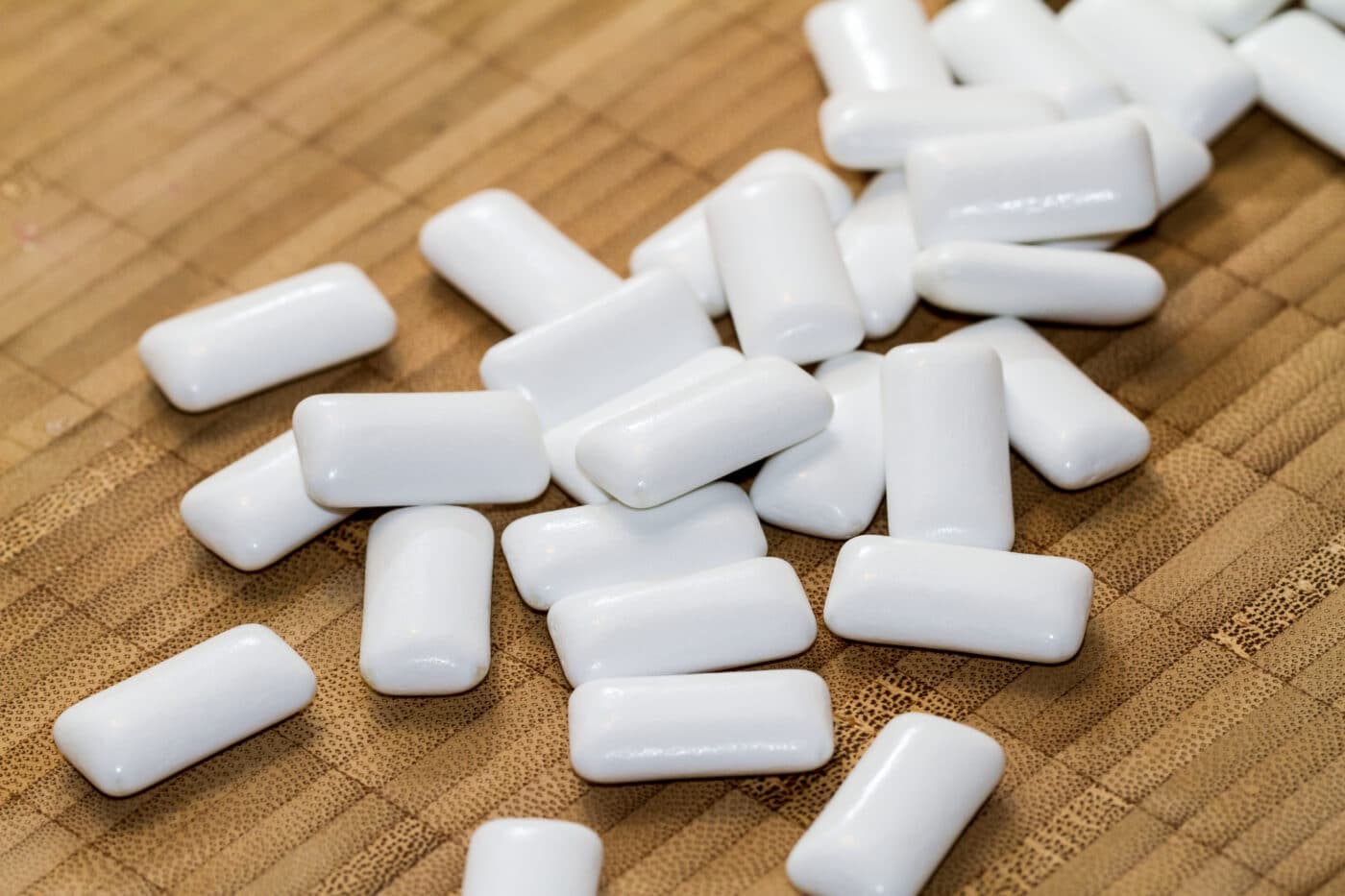 Shutterstock
Shutterstock
Xylitol is an artificial sweetener in many sugar-free products, such as gum, candies, and baked goods. It’s extremely dangerous for dogs because it can cause a rapid release of insulin, leading to a sudden drop in blood sugar levels. This can result in symptoms like vomiting, loss of coordination, seizures, and, in severe cases, liver failure. It only takes a small amount of xylitol to cause serious harm, so it’s important to check ingredient labels and keep anything containing this sweetener out of your dog’s reach.
Macadamia Nuts
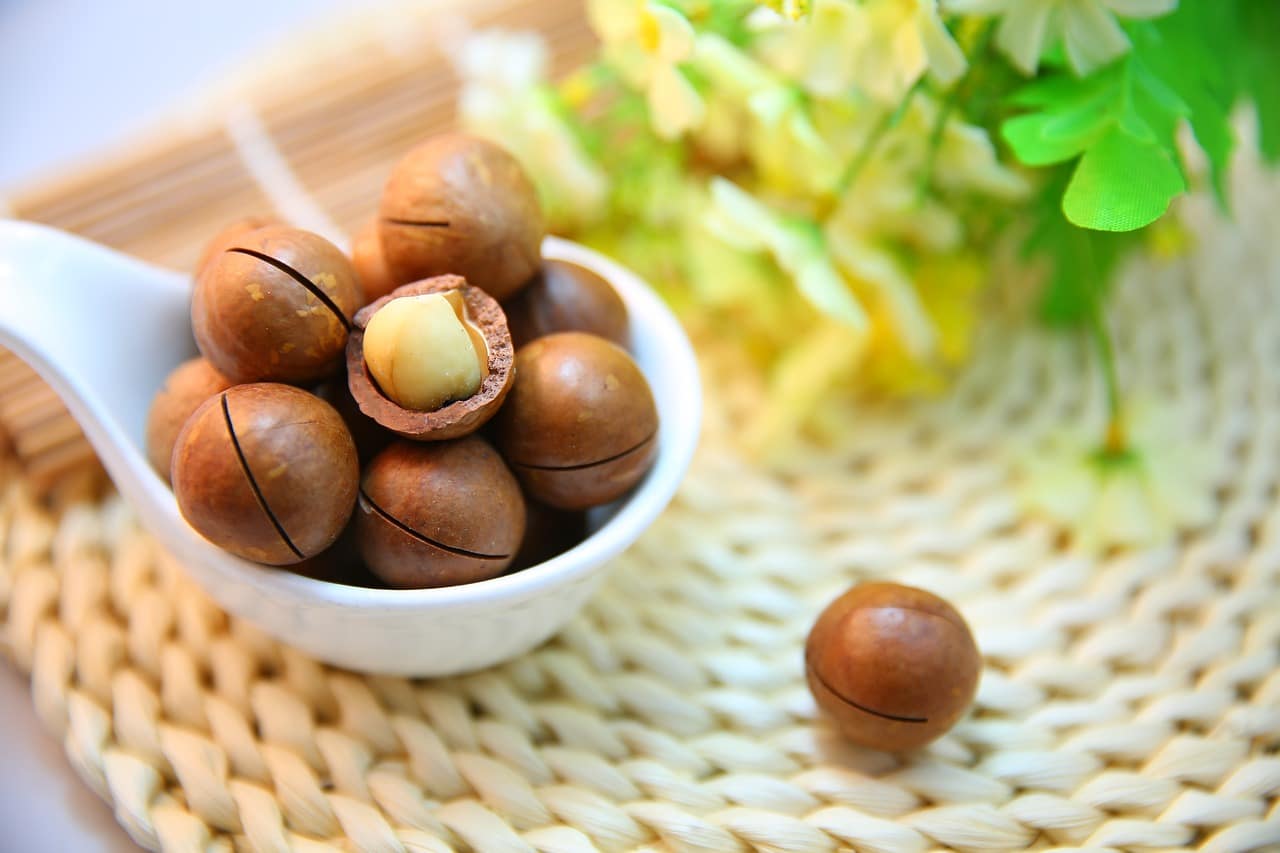 Shutterstock
Shutterstock
Macadamia nuts may be a tasty treat for humans, but they’re toxic to dogs. Eating even a few macadamia nuts can cause symptoms like weakness, vomiting, tremors, and hyperthermia in dogs. While the exact cause of this toxicity is unclear, the symptoms can be quite severe and may require medical attention. Macadamia nuts are often found in cookies and other baked goods, so keep these out of reach to prevent accidental ingestion.
Avocado
 Shutterstock
Shutterstock
Avocados contain a substance called persin, which is toxic to dogs. While the fleshy part of the avocado contains less persin than the skin and pit, it’s still best to avoid giving avocados to your dog altogether. Eating avocado can lead to vomiting, diarrhea, and other stomach issues. The pit poses a choking hazard and can also cause intestinal blockages if ingested. Keep avocados and avocado-based foods like guacamole away from curious canine mouths to be safe.
Alcohol
 Shutterstock
Shutterstock
Alcohol is highly toxic to dogs, even in small amounts. It can cause symptoms like vomiting, disorientation, difficulty breathing, and, in severe cases, coma or death. Dogs are much more sensitive to the effects of alcohol than humans, and what seems like a harmless sip of beer or wine can be life-threatening for them. It’s important to keep alcoholic beverages, as well as foods containing alcohol, out of your dog’s reach to ensure their safety.
Coffee
 Shutterstock
Shutterstock
Coffee, tea, and other sources of caffeine should never be given to dogs. Caffeine is a stimulant that can affect a dog’s central nervous system, leading to symptoms like restlessness, rapid breathing, heart palpitations, and muscle tremors. In severe cases, caffeine ingestion can lead to seizures or death. Since dogs are much more sensitive to caffeine than humans, even a small amount can be dangerous. Keep your morning coffee and energy drinks far away from your dog’s curious snout.
Raw Dough
 Shutterstock
Shutterstock
Raw dough containing yeast can be dangerous for dogs because it can expand in their stomachs, causing bloating and discomfort. As the yeast ferments, it can produce alcohol, adding another toxicity layer. Eating raw dough can cause stomach pain and vomiting and, in severe cases, lead to alcohol poisoning. If your dog ingests raw dough, contact your vet to ensure their safety. Always keep baking projects out of their reach until the treats are fully cooked and dog-friendly!
Cooked Bones
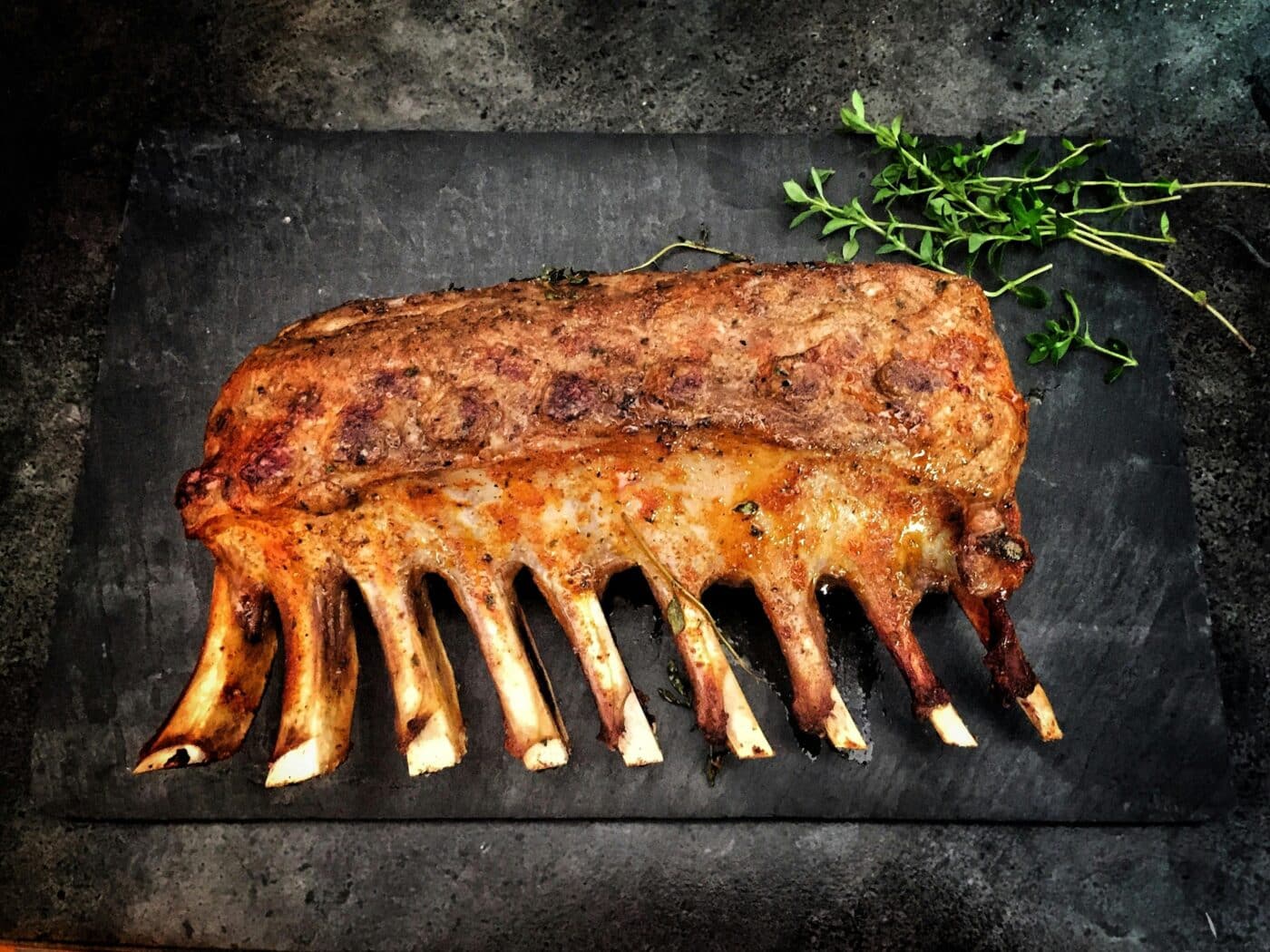 Shutterstock
Shutterstock
While raw bones can be a safe treat for some dogs, cooked bones should be avoided. Cooking makes bones more brittle, increasing the risk of splintering and causing injury to your dog’s digestive tract. Sharp bone fragments can lead to choking, tears in the esophagus or intestines, and other serious complications. If you want to treat your dog to a bone, it’s best to stick to raw, dog-safe bones or specially prepared bones designed for chewing.
Fat Trimmings
 Shutterstock
Shutterstock
Feeding your dog fat trimmings from meat, whether cooked or raw, can cause digestive issues like vomiting and diarrhea. High-fat foods can also lead to pancreatitis, a painful and potentially life-threatening condition in dogs. While tossing your dog a piece of leftover bacon or steak fat might be tempting, it’s best to stick to lean meats and avoid sharing fatty scraps. Instead, opt for dog-safe treats that won’t put their health at risk.
Cherries
 Shutterstock
Shutterstock
Cherries can be dangerous for dogs because the pits contain cyanide, which is toxic if ingested. Even if the pit is removed, the flesh of cherries can still cause digestive upset. If a dog swallows a cherry pit, it can also cause an intestinal blockage, leading to more serious complications. It’s best to avoid feeding your dog cherries altogether to be safe. Stick to safer fruit options like blueberries or apples, which offer a sweet treat without the risks.
Raw Eggs
 Shutterstock
Shutterstock
Raw eggs risk salmonella or E. coli infection for dogs, just as they do for humans. Eating raw eggs can lead to gastrointestinal upset, including vomiting and diarrhea. Raw egg whites also contain a protein called avidin, which can interfere with biotin absorption in dogs if consumed in large quantities. While occasional eggs are a great source of protein when cooked, it’s best to avoid giving them raw to keep your dog safe from potential bacteria.
Bacon and Processed Meats
 Shutterstock
Shutterstock
Bacon and other processed meats like sausage are high in salt and fat, which can lead to digestive issues and pancreatitis in dogs. The high sodium content in these meats can also cause dehydration and increase the risk of salt poisoning, especially if a dog eats a large amount. Processed meats often contain preservatives and additives that aren’t healthy for dogs. If you want to share a meaty treat with your dog, it’s best to stick to lean, plain meats without added salt or seasoning.
Tomato Plants
 Shutterstock
Shutterstock
While ripe tomatoes are generally safe for dogs in small amounts, the green parts of the tomato plant (leaves, stems, and unripe fruit) contain solanine, which is toxic to dogs. Ingesting tomato plant parts can cause gastrointestinal upset, lethargy, and confusion. It’s important to keep your dog away from garden areas where tomatoes are grown to prevent accidental ingestion. If your dog munches on a tomato plant, contact your vet for guidance on how to proceed.
Mushrooms
 Shutterstock
Shutterstock
In moderation, store-bought mushrooms are generally safe for dogs, but wild mushrooms can be highly toxic. Many varieties of wild mushrooms can cause severe symptoms like vomiting, diarrhea, seizures, and even liver failure in dogs. It’s best to avoid feeding your dog mushrooms unless you’re certain they’re safe, store-bought varieties. If you suspect your dog has ingested a wild mushroom, seek veterinary care immediately to prevent serious complications.
Nutmeg
 Shutterstock
Shutterstock
Nutmeg contains a compound called myristicin, which can be toxic to dogs. Ingesting nutmeg can cause symptoms like hallucinations, disorientation, increased heart rate, and seizures. While it’s unlikely that your dog would consume much nutmeg independently, keeping baked goods containing this spice out of reach is best. Opt for dog-safe spices like cinnamon to add a little flavor to homemade dog treats.
Citrus Fruits
 Shutterstock
Shutterstock
While small amounts of citrus fruits like oranges and tangerines aren’t typically harmful, the seeds, peels, and stems contain compounds that can cause digestive upset in dogs. The high acidity of citrus fruits can also irritate a dog’s stomach, leading to symptoms like vomiting and diarrhea. Citrus oils can be particularly toxic, so keeping these fruits out of your dog’s reach is best. If you share a bit of citrus with your dog, remove the seeds and peel beforehand.
Raw Potatoes
 Shutterstock
Shutterstock
Raw potatoes contain solanine, a compound that can be toxic to dogs. While cooking the potato reduces the solanine levels, it’s still best to avoid feeding raw potatoes to your dog. Symptoms of solanine poisoning include gastrointestinal upset, lethargy, and confusion. To share potatoes with your dog, ensure they’re cooked thoroughly and served plain, without added salt or butter.
Nut Butter with Xylitol
 Shutterstock
Shutterstock
Many peanut and other nut butter are a hit with dogs, but be sure to read the label. Some brands add xylitol, a sugar substitute that’s extremely toxic to dogs. Xylitol can cause a rapid release of insulin, leading to hypoglycemia (low blood sugar). Symptoms of xylitol poisoning include vomiting, loss of coordination, and seizures. To be safe, always choose a natural, unsweetened nut butter without any additives that could harm your dog.
Rhubarb
 Shutterstock
Shutterstock
Rhubarb leaves contain oxalates, which can cause severe kidney damage in dogs if ingested. While the stalks are generally safe for humans when cooked, they can still pose a risk to dogs. Symptoms of rhubarb toxicity include drooling, tremors, and difficulty breathing. To keep your dog safe, avoid sharing any part of the rhubarb plant with them, and keep them away from rhubarb growing in gardens.
Ice Cream
 Shutterstock
Shutterstock
While it’s not directly toxic, ice cream can upset a dog’s stomach due to its high sugar content and the lactose in dairy products. Many dogs are lactose intolerant, meaning ice cream can lead to gas, bloating, and diarrhea. Opt for dog-friendly ice creams or plain yogurt for a safer alternative to give your dog a frozen treat. It’s best to keep sugary, rich desserts for humans only.
Spicy Foods
 Shutterstock
Shutterstock
Spicy foods can cause digestive distress in dogs, leading to symptoms like vomiting, diarrhea, and abdominal pain. The capsaicin in spicy peppers can irritate your dog’s digestive tract and mouth, leading to discomfort and distress. It’s best to avoid sharing spicy foods with your dog and stick to plain, dog-safe treats that won’t upset their stomach.
Hot Dogs
 Shutterstock
Shutterstock
Hot dogs may seem like a harmless snack for your dog, but they contain high levels of salt, fat, and preservatives that can harm your dog’s health. The high sodium content in hot dogs can lead to dehydration or even salt poisoning in extreme cases. The fatty content can also contribute to digestive upset or pancreatitis. Instead, offer plain, lean meats like chicken or turkey if you want to share a meaty treat with your dog.
Foods Your Dog Surprisingly Can Eat
 Shutterstock
Shutterstock
When it comes to feeding your dog, it’s easy to assume that their diet should be limited to kibble and dog treats. But you might be surprised to learn that many foods from your pantry or fridge can be shared safely with your furry friend. These dog-friendly foods can add variety to your pup’s diet and offer nutritional benefits.
Apples
 Shutterstock
Shutterstock
Apples are a crunchy and delicious snack that many dogs enjoy. They are packed with vitamins A and C and fiber, which can help support your dog’s digestive health. Apples also provide a satisfying crunch many dogs love, making them a great alternative to traditional dog treats. Just be sure to remove the seeds and core, as they can be a choking hazard and contain small amounts of cyanide. Whether sliced up as a snack or mixed into their food, apples are a sweet way to give your dog a healthy treat.
Carrots
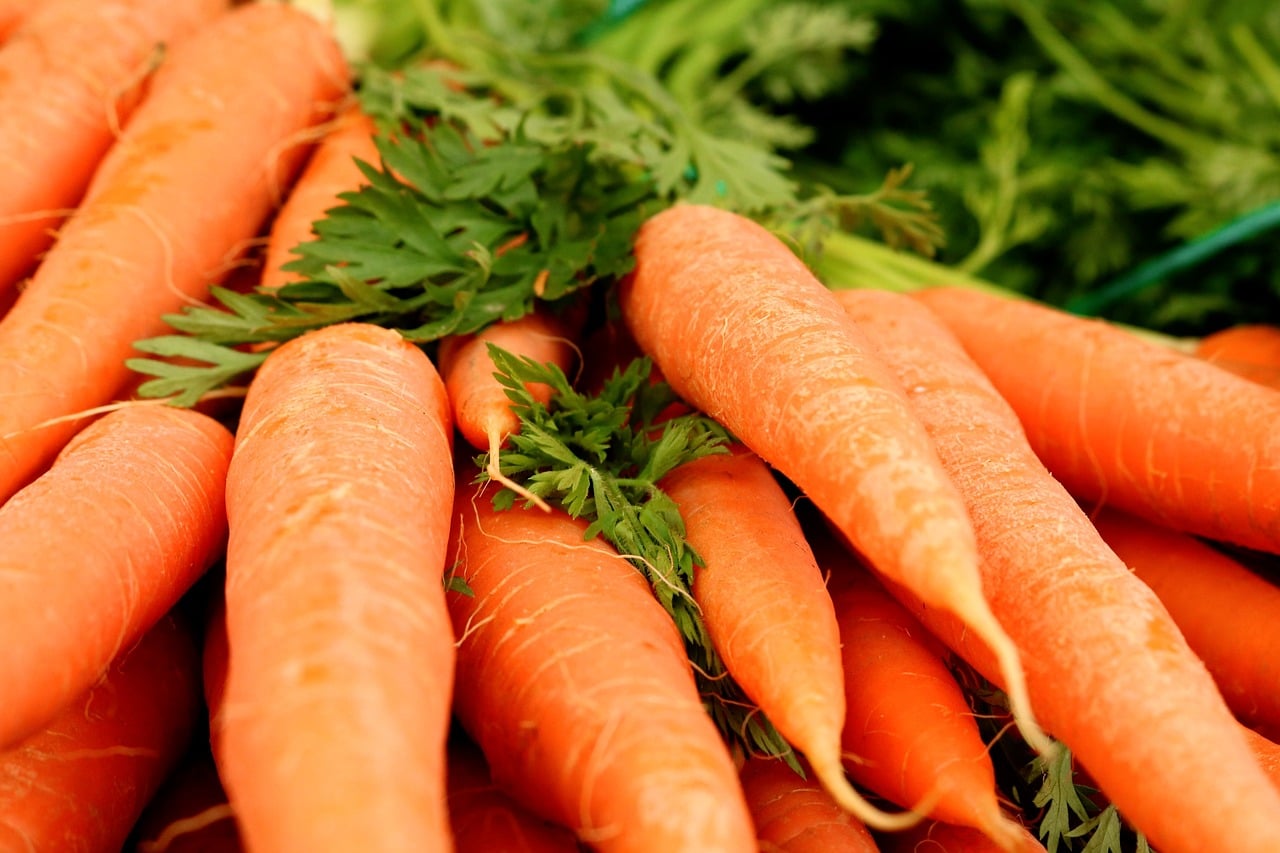 Shutterstock
Shutterstock
Carrots are not only good for your eyesight—they’re great for your dog’s too! These crunchy veggies are low in calories and high in beta-carotene, which converts into vitamin A. This vitamin supports your dog’s vision, skin, and immune system. Carrots also help keep your dog’s teeth clean by reducing plaque buildup as they chew. Raw or cooked carrots can be a tasty and nutritious addition to your dog’s diet. Plus, they make an easy, portable snack you can bring along on walks for a healthy treat.
Pumpkin
 Shutterstock
Shutterstock
Pumpkin is a superfood for dogs, and it’s especially helpful for their digestive health. Rich in fiber, pumpkin can help regulate your dog’s digestion, whether they’re dealing with constipation or diarrhea. It’s also packed with vitamins A, E, and C and potassium. Canned plain pumpkin (not pumpkin pie filling) is the best option, as it’s easy to mix into your dog’s food. A spoonful of pumpkin can add moisture to your dog’s diet, making their meal even more appealing. It’s a versatile food that’s as nutritious as it is tasty.
Blueberries
 Shutterstock
Shutterstock
Blueberries are little powerhouses of antioxidants, and they’re just as beneficial for dogs as they are for humans. These tiny fruits contain vitamins C and K and fiber, making them a great low-calorie treat. Blueberries help boost your dog’s immune system and can even support brain health. Their small size makes them perfect for training treats or as a sweet addition to your dog’s regular meal. Ensure not to overdo it, as too many can upset their stomach. Blueberries are a berry good choice for a healthy snack.
Sweet Potatoes
 Shutterstock
Shutterstock
Sweet potatoes are a nutritious and tasty food that many dogs enjoy. They are rich in vitamins A, C, and B6, as well as fiber, which helps promote healthy digestion. Sweet potatoes are also a good source of beta-carotene, which supports your dog’s immune system and skin health. Cooked and mashed, sweet potatoes can be added to your dog’s food as a tasty topper, or you can slice them into chips and bake them for a crunchy treat. Just cook them thoroughly, as raw sweet potatoes can be difficult for dogs to digest.
Green Beans
 Shutterstock
Shutterstock
Green beans are a low-calorie, high-fiber snack perfect for dogs who need to watch their weight. They are packed with vitamins C and K, iron, and calcium. Green beans can be served fresh, frozen, or cooked (without seasoning), and many dogs love the crunchy texture. They’re a great addition to your dog’s meals if you want to add some extra nutrients without increasing their calorie intake. Whether you use them as a treat or mix them into dinner, green beans are a healthy way to satisfy your dog.
Salmon
 Shutterstock
Shutterstock
Salmon is a great source of omega-3 fatty acids, which can help keep your dog’s coat shiny and their skin healthy. It’s also high in protein, making it an excellent choice for dogs who need a boost in their diet. Cooked salmon (without any seasoning) can be added to your dog’s food as a special treat, or you can look for treats made with salmon as a primary ingredient. Salmon is a good choice for dogs with allergies to other protein sources like chicken or beef. Just be sure to avoid feeding raw salmon, which can contain harmful parasites.
Bananas
 Shutterstock
Shutterstock
Bananas are a sweet and nutritious treat that many dogs love. They are rich in potassium, which supports muscle and nerve function, and vitamins B6 and C. Bananas can also help with digestive issues due to their fiber content. They make a great alternative to high-calorie treats, especially for dogs who need to lose weight. You can mash up a banana and mix it with your dog’s food, freeze banana slices for a cool summer treat, or even use it in homemade dog treats. Bananas are a simple, easy way to add some extra sweetness to your dog’s diet.
Cottage Cheese
 Shutterstock
Shutterstock
Cottage cheese is a good source of protein and calcium, and it’s easy on your dog’s stomach when fed in small amounts. It’s a great option for dogs who might be lactose intolerant, as it’s lower in lactose than regular cheese. Cottage cheese can be mixed into your dog’s food for a creamy treat, and it can also be helpful for dogs recovering from an upset stomach. Be sure to choose plain, low-fat cottage cheese without added flavors or salt. A little cottage cheese can go a long way in making your dog’s meal extra special.
Watermelon
 Shutterstock
Shutterstock
Watermelon is a hydrating snack that’s perfect for hot days. This juicy fruit is over 90% water, making it a great way to keep your dog cool and hydrated. Watermelon is also a good source of vitamins A, B6, and C and antioxidants. Just be sure to remove the seeds and rind before feeding it to your dog, as they can be difficult to digest. A few small cubes of watermelon can be a refreshing treat that your dog will love to munch during the summer. It’s a sweet, healthy way to beat the heat together.
Spinach
 Shutterstock
Shutterstock
Spinach is a leafy green packed with nutrients like iron, vitamins A, C, and K, and antioxidants that can benefit your dog’s overall health. While it should be fed in moderation due to its high oxalate content (which can affect kidney function in large amounts), a little spinach added to your dog’s meal can be a great way to boost their nutrient intake. Lightly steaming the spinach can make it easier for your dog to digest, and it can be mixed in with their food for a nutritious green addition. Spinach adds a touch of superfood power to your dog’s diet.
Pears
 Shutterstock
Shutterstock
Pears are another sweet fruit that is safe for dogs when given in moderation. They are high in fiber and vitamin C, which can help support your dog’s digestive and immune systems. As with apples, remove the seeds and core, as they can be harmful if ingested. Pears can be sliced into small pieces and given as a crunchy treat or mixed into your dog’s food for a little extra sweetness. The juicy texture of pears makes them a refreshing snack that most dogs enjoy.
The Snack Attack Handbook
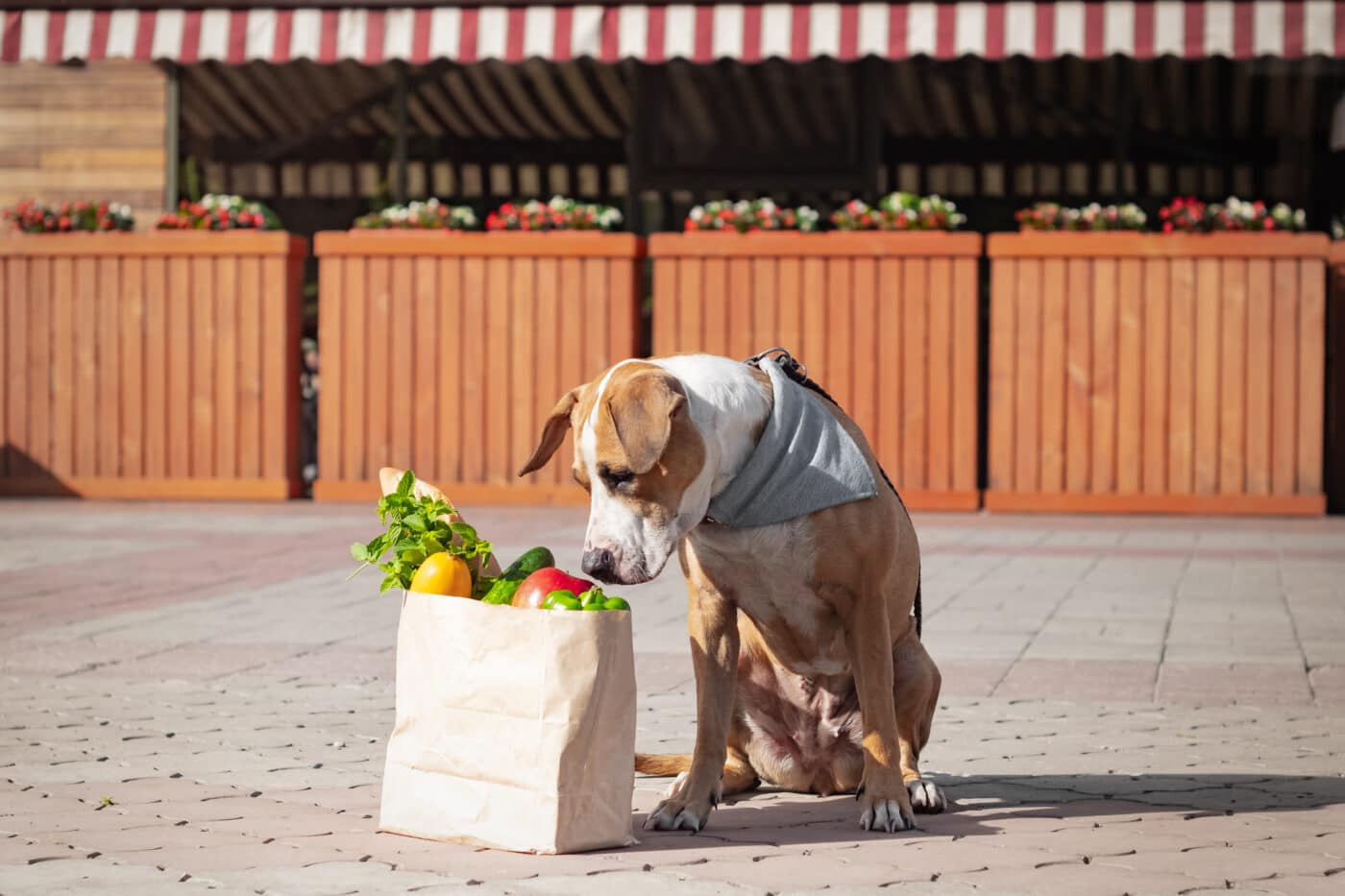 Shutterstock
Shutterstock
Whether it’s a food your dog should avoid or a treat they can safely enjoy, knowing what’s safe to share is crucial for keeping your furry friend healthy and happy. With this guide, you’ll be better equipped to navigate those puppy-dog eyes during snack time. So, next time your dog gives you that “I want a bite” look, you’ll know exactly which treats are safe and should stay off-limits. Remember: moderation is key, and a happy, healthy dog is worth extra vigilance in the kitchen!

